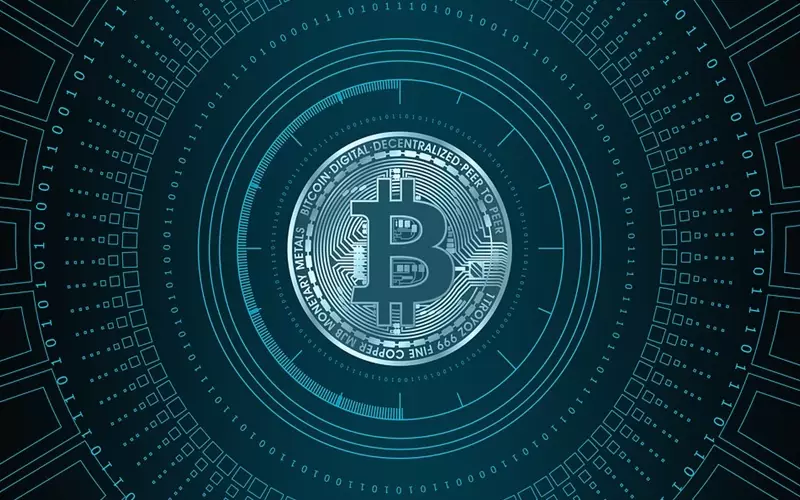What is a Private Key?
A private key is a secret 256-bit long number randomly selected when you create a Bitcoin wallet. This is the address which enables you to send the Bitcoins to a recipient’s address. You never share the private key to anyone.
The number and type of cryptographic functions implemented for security reasons defines just how random and unique the key is.
A private uncompressed key always begins with a 5 and it looks like this:

5Hwgr3u458GLafKBgxtssHSPqJnYoGrSzgQsPwLFhLNYskDPyyA
What is a Public Key?
A public key is another address consisting of numbers and letters which is a derivate from private keys after they have been encrypted via the use of mathematical functions. The encryption process cannot be reversed and thus no one can find out the original private key. This is the address that enables you to receive Bitcoins.
The hash of a public key is always 1:
1BvBMSEYstWetqTFn5Au4m4GFg7xJaNVN2
This address you publicly make available in order to receive Bitcoins. There is no limit to how many public addresses a user can generate. In order to generate such a key and subsequently a wallet address, there have to be applied a number of conversions to the private key. These conversions are known as hash functions, which are un-reversible conversions.
Creating a Public Key with ECDSA
The first thing you have to do is apply to your private key an ECDSA, also know as Elliptic Curve Digital Signature Algorithm. An elliptic curve is defined by the equation y² = x³ + ax + b with selected value for a and b. There is an entire family of these curves which can be applied. Bitcoin makes use of the secp256k1 curve.
Applying an ECDSA to the private key will result in a 64-byte integer composed of two 32-byte integers put together which represent the X and Y of the point on the elliptic curve.
Below is the code you would require in Python language:
private_key_bytes = codecs.decode(private_key, ‘hex’)
# Get ECDSA public key
key = ecdsa.SigningKey.from_string(private_key_bytes, curve=ecdsa.SECP256k1).verifying_key
key_bytes = key.to_string()
key_hex = codecs.encode(key_bytes, ‘hex’)
In the code presented above the private keys were decoded with codecs. As in Python, there are at least two classes that can keep the private and public keys, “str”, a string array, and “bytes”- a byte array, things can get a little confusing.
This is because an X string array is not equal to an X byte array, but it equals the byte array with two elements, O<. The codecs.decode method converts a string into a byte array.
After applying ECDSA, we will have to add the bytes 0x04 (04 as a prefix) to the resulted public key. This will generate a Bitcoin full public key.
Compressing the public key
Instead of using the long version of the public key we can compress it to be shorter.
This is done by taking the X from the ECDSA public key and adding 0x02 if the last byte of Y is even, and the 0x03 byte if the last byte is odd.
Encrypting the Key with SHA-256 And RIPEMD-160
Now we move on to create our wallet address. Regardless of the method applied to the public key, the procedure is the same. Obviously, you will have different resulting addresses.
For this, we will need to apply two hash functions: first, we apply SHA-256 to the public key, and then encrypt the result using RIPEMD-160. It is very important that the algorithms are applied in this exact order.
At the end of this process, you will have a 160-bit integer which represents an encrypted public key.
Below is the code needed to encrypt the public key in Python:
public_key_bytes = codecs.decode(public_key, ‘hex’)
# Run SHA-256 for the public key
sha256_bpk = hashlib.sha256(public_key_bytes)
sha256_bpk_digest = sha256_bpk.digest()
# Run RIPEMD-160 for the SHA-256
ripemd160_bpk = hashlib.new(‘ripemd160’)
ripemd160_bpk.update(sha256_bpk_digest)
ripemd160_bpk_digest = ripemd160_bpk.digest()
ripemd160_bpk_hex = codecs.encode(ripemd160_bpk_digest, ‘hex’)
Adding the network byte
As Bitcoin has two networks, main and test, we will need to create an address which will be used on the mainnet. This means that we will have to add 0x00 bytes to the encrypted public key. For testnet use, you would have to add 0x6f bytes.
Calculating the Checksum
The next step is to calculate the checksum of the resulted mainnet key. A checksum ensures that the key has still maintained its integrity during the process. If the checksum does not match, the address will be marked as invalid.
In order to generate a key’s checksum, the SHA-256 hash function must be applied twice and then take the first 4 bytes from this result. Keep in mind that 4 bytes represent 8 hex digits.
The code required for calculating an address checksum is:
# Double SHA256 to get checksum
sha256_nbpk = hashlib.sha256(network_bitcoin_public_key_bytes)
sha256_nbpk_digest = sha256_nbpk.digest()
sha256_2_nbpk = hashlib.sha256(sha256_nbpk_digest)
sha256_2_nbpk_digest = sha256_2_nbpk.digest()
sha256_2_hex = codecs.encode(sha256_2_nbpk_digest, ‘hex’)
checksum = sha256_2_hex[:8]
Now the last step required to make an address is to merge the mainnet key and the checksum.
Encoding the Key with Base58
You will notice that the resulted key does not look like other BTC addresses. This is because most convert them to a Base58 address.
Below is the algorithm needed to convert a hex address to a Base58 address:
def base58(address_hex):
alphabet = ‘123456789ABCDEFGHJKLMNPQRSTUVWXYZabcdefghijkmnopqrstuvwxyz’
b58_string = ‘’
# Get the number of leading zeros
leading_zeros = len(address_hex) — len(address_hex.lstrip(‘0’))
# Convert hex to decimal
address_int = int(address_hex, 16)
# Append digits to the start of string
while address_int > 0:
digit = address_int % 58
digit_char = alphabet[digit]
b58_string = digit_char + b58_string
address_int //= 58
# Add ‘1’ for each 2 leading zeros
ones = leading_zeros // 2
for one in range(ones):
b58_string = ‘1’ + b58_string
return b58_string
The resulted string will represent a compressed Bitcoin wallet address.
Conclusion
The process of generating a Bitcoin wallet address from a private key is not that difficult if you pay close attention to the aforementioned steps.
If your private key is full or compressed, the resulting addresses will look different, but both of them are just as valid.



